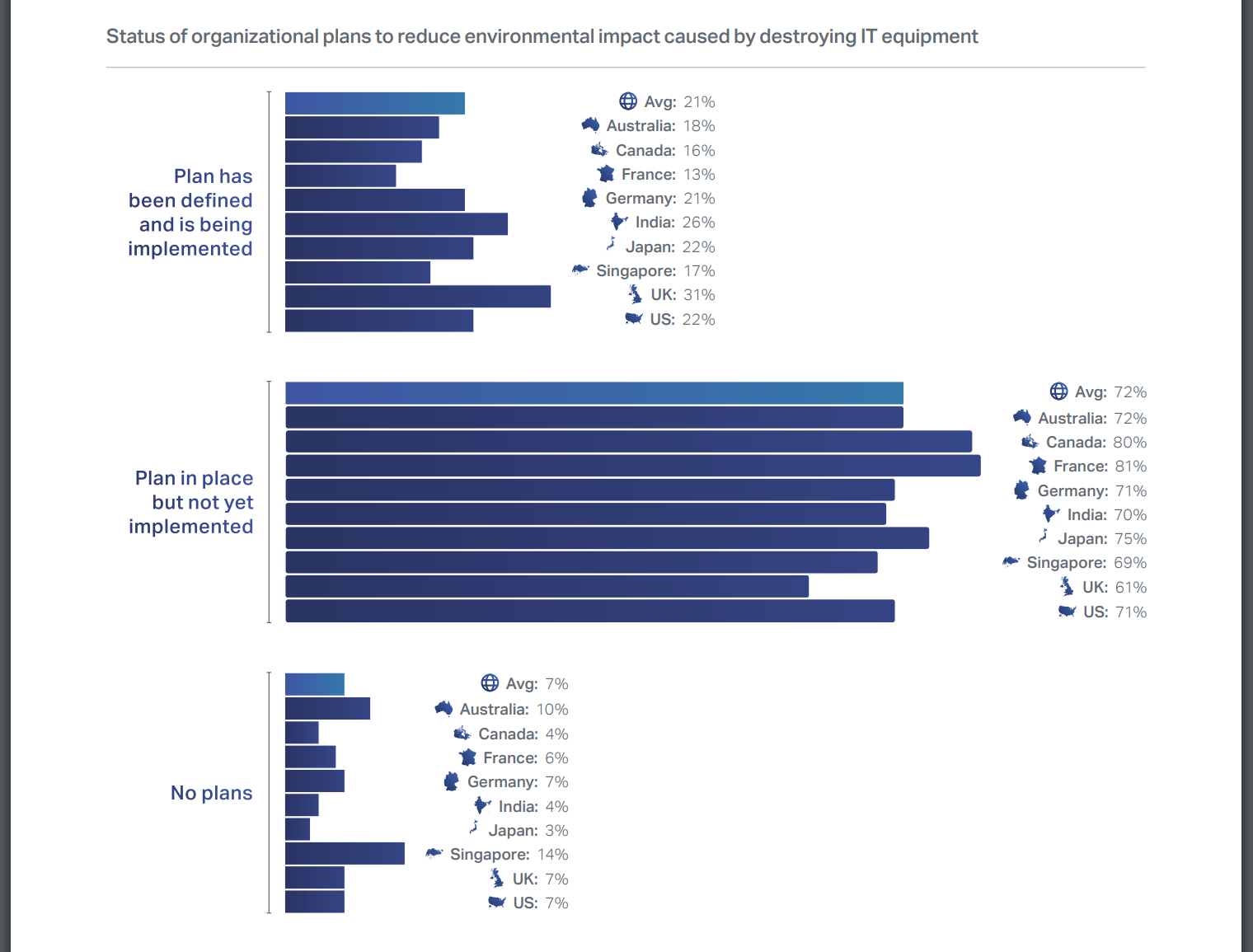The primary purpose of any government would obviously be to protect and further the interests of its nation state, but that is often something that comes at a really great cost. The data that governments place on SSDs and the like can be sensitive and dangerous because of the fact that this is the sort of thing that could potentially end up causing a lot of harm if it falls into the wrong hands, and that’s why so many government institutions spend tens of millions of dollars destroying these SSDs as soon as they can.
The US and the UK are spending around $7 million apiece to destroy old SSDs with sensitive information on them and replacing them with new ones, as highlighted by Blancco Technology Group in its study titled, "The Price of Destruction: Exploring the Financial & Environmental Costs of Public Sector Device Sanitization". With all of that having been said and now out of the way, it is important to note that the environmental impact of such practices could be rather drastic since it increased consumption by unnecessary amounts.
According to a recent survey, only 21% of governmental organizations that responded to this survey were actually following through with plans that they had to make things more sustainable from an environmental point of view. That’s pretty shocking when you consider that 93% of them already have a plan in place, something that indicates that there is a lack of will to actually do anything that would benefit the environment with all things having been considered and taken into account.
52% of these respondents said that destroying an SSD was the cheapest way to ensure that no one could ever access this data. Simply formatting it usually does not do enough to remove this data entirely, and destroying them is the kind of cost effective and overall efficient solution that most government agencies would hesitate to move away from.
The thing is, there are ways to get rid of this information and sanitize the SSDs without disposing of them. That could create increased years of usage for each drive, something that could reduce the environmental damages that they might end up having in the long run. It is high time that government institutions started to move towards such practices.
Read next: Climate Scientists Suggest it Might Be Too Late to Prevent a Climate Crisis, But These Steps Might Reduce Its Impact
The US and the UK are spending around $7 million apiece to destroy old SSDs with sensitive information on them and replacing them with new ones, as highlighted by Blancco Technology Group in its study titled, "The Price of Destruction: Exploring the Financial & Environmental Costs of Public Sector Device Sanitization". With all of that having been said and now out of the way, it is important to note that the environmental impact of such practices could be rather drastic since it increased consumption by unnecessary amounts.
According to a recent survey, only 21% of governmental organizations that responded to this survey were actually following through with plans that they had to make things more sustainable from an environmental point of view. That’s pretty shocking when you consider that 93% of them already have a plan in place, something that indicates that there is a lack of will to actually do anything that would benefit the environment with all things having been considered and taken into account.
52% of these respondents said that destroying an SSD was the cheapest way to ensure that no one could ever access this data. Simply formatting it usually does not do enough to remove this data entirely, and destroying them is the kind of cost effective and overall efficient solution that most government agencies would hesitate to move away from.
The thing is, there are ways to get rid of this information and sanitize the SSDs without disposing of them. That could create increased years of usage for each drive, something that could reduce the environmental damages that they might end up having in the long run. It is high time that government institutions started to move towards such practices.
Read next: Climate Scientists Suggest it Might Be Too Late to Prevent a Climate Crisis, But These Steps Might Reduce Its Impact


